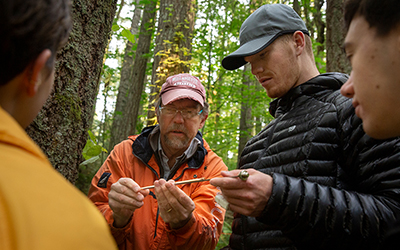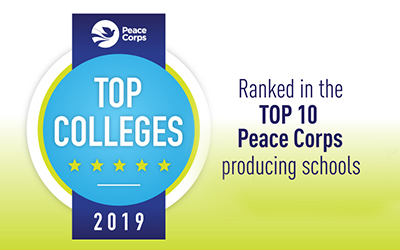Sustainability at Willamette University
Sustainability Month
During the month of October there are a number of fun and engaging events to check out.
Sustainability MonthOur Zena Property
305-acres of forest, prairie, and small sustainable agriculture for students, faculty and staff.
Zena ForestCommunity Action Fund for Equity & Sustainability
Our student-led program funds projects advancing sustainability, equity, and social justice.
Community Action Fund for Equity & SustainabilitySustainability Leadership
About Sustainability
News Story
Why study sustainability? It's relevant to any major.
As we think about the future, we must reconsider the way we live, work and play to make the best use of our natural resources.

News Story
Willamette ranks No. 9 in US for Peace Corps volunteers
University has been ranked among the top small colleges 15 of the last 17 years.

Categories:
Willamette University
Willamette University Sustainability Institute
Phone
503-370-6482



